Boxing history is filled with controversial judging and refereeing decisions that have sparked fury, debate and even changes to the sport. Often, a single questionable judge’s scorecard has unfairly altered the career arc of boxers and left fans demanding justice over perceived robberies in the ring.

In particular, many of boxing’s most disputed decisions have centered around scorecards that do not accuratly reflect the action in lopsided fights. However, while debates over razor-thin, debatable scorecards will always exist in the subjective sport of prizefighting, it is the wider split decisions awarding undeserved wins to clearly second-best fighters that truly provoke claims of all-time robberies.
This article will analyze the 10 most controversial verdicts in boxing history, detailing the questionable scorecards that shaped legacies and outraged millions of fight fans.
Contents
- 1 The Most Contentious Boxing Match Outcomes in History
- 1.1 Controversial Boxing Decision #2: Julio Cesar Chavez vs. Pernell Whitaker – September 10, 1993
- 1.2 Controversial Boxing Decision #3: Timothy Bradley vs. Manny Pacquiao I – June 9, 2012
- 1.3 Controversial Boxing Decision #4: Dave Tiberi vs. James Toney – February 8, 1993
- 1.4 Controversial Boxing Decision #5: Lennox Lewis vs. Evander Holyfield I – March 13, 1999
- 2 Boxing Judges Who Have Made Terrible Calls
- 2.1 Controversial Boxing Decision #6: Marvin Hagler vs. Sugar Ray Leonard – April 6, 1987
- 2.2 Controversial Boxing Decision #7: Oscar De La Hoya vs. Felix Trinidad – September 18, 1999
- 2.3 Controversial Boxing Decision #8: Jose Armando Santa Cruz vs. Joel Casamayor I – August 12, 2000
- 2.4 Controversial Boxing Decision #9: Josesito Lopez vs. Francisco Santana – June 21, 2015
- 2.5 Controversial Boxing Decision #10: Billy Joe Saunders vs. John Ryder – September 21, 2013
- 3 Implementing Changes To Improve Boxing Judging and Fairness
- 4 Conclusion: The Critical Need For Reform
- 5 FAQs
Controversial Boxing Decision #1: Muhammad Ali vs. Ken Norton I – March 31, 1973
Going into his 1973 fight versus the relentless pressure fighter Ken Norton, Muhammad Ali was on the comeback trail from temporary retirement and his first ever professional loss against Joe Frazier.
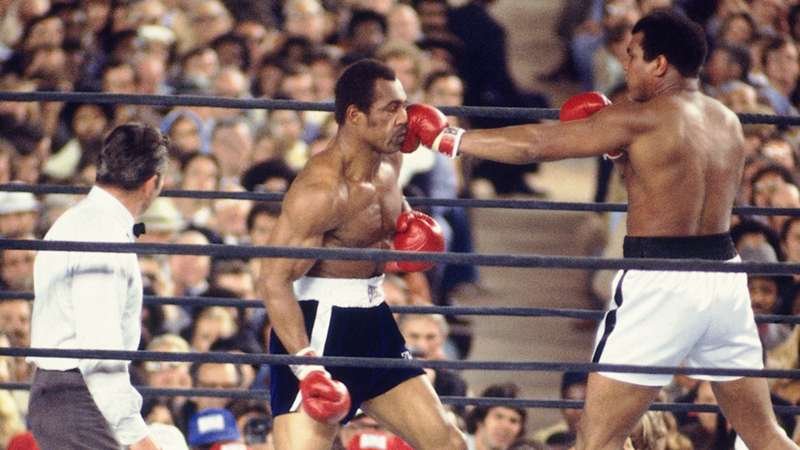
While Ali had regained his title by beating Frazier in their 1974 rematch, he was not yet back to his imperious best form. Meanwhile, the powerful and teak-tough Norton was determined to continue his own rise up the heavyweight ranks after beating the respected contender Henry Clark.
Round-By-Round Analysis
| Round | Ali | Norton |
|---|---|---|
| 1-4 | Ali started decently and used his jab and combinations to build an early lead, although his stamina issues were apparent | Norton walked through Ali’s punches and targeted the body |
| 5-7 | Ali continued to throw fluid flurries but Norton’s pressure kept the fight close | Norton applied relentless pressure but missed frequently with wild swings |
| 8-11 | With both eyes swollen, Ali boxed more cautiously off the backfoot | Norton battered a flagging Ali around the ring who clinched frequently |
| 12 | Ali courageously stood toe-to-toe and rallied in the final round | Norton pressed forward but was stunned by Ali combinations |
In total, despite tiring down the stretch, Muhammad Ali appeared to land the better punches over the course of the 12 rounds and fought hard until the last bell. He looked to have his hand raised for a close points win or at worst a draw.
The Controversial Split Decision
Thus referee Dick Young’s declaration that Norton had won via split decision was met with loud boos and shock from the live audience. When ring announcer Chuck Hull began reading the lopsided scorecards, the reaction became even more incredulous:
- Referee Dick Young: 8-7 Ali
- Judge Dick Flaherty: 8-6-1 Norton
- Judge Fred Hayes: 8-7 Norton
With all due respect to Norton’s inspired performance as a 5/1 betting underdog, this off-kilter verdict made little sense. Ali clearly won or at worst earned a draw based on landing over 100 more total punches in the fight.
Quotes on the Decision
“I won the fight clearly. Everybody knows I won the fight. I was robbed. I mean, everybody knows Norton didn’t win, even him. I didn’t make excuses, but I was sluggish from a sparring knockout.” – Muhammad Ali
“I won it fairly and squarely. Ali says they robbed him but no one came up to me afterward in my dressing room.” – Ken Norton
This flashpoint victory would propel Ken Norton to prominence with the WBC strap and immortalize his trilogy of slugfests versus Ali. However, the ongoing debate over whether Norton deserved to have his hand raised that night has forever clouded over his breakthrough win.
The Most Contentious Boxing Match Outcomes in History
While tricky judgement calls will always spark close fight disputes between nervous scorecard checkers, it is the legitimately terrible decisions awarding dominance-denying wins to outclassed fighters that provoke true outrage.
Here are 9 more shockers where boxers had career-defining victories plainly ripped away from them on the cards…
Controversial Boxing Decision #2: Julio Cesar Chavez vs. Pernell Whitaker – September 10, 1993
In 1993, Mexican legend Julio Cesar Chavez sported an intimidating 87-0 record and was considered by many to be the top pound-for-pound boxer in the world. Meanwhile, American gold medalist “Sweet Pea” Pernell Whitaker had compiled his own gnarly 32-1 resume and world titles across multiple weight classes.
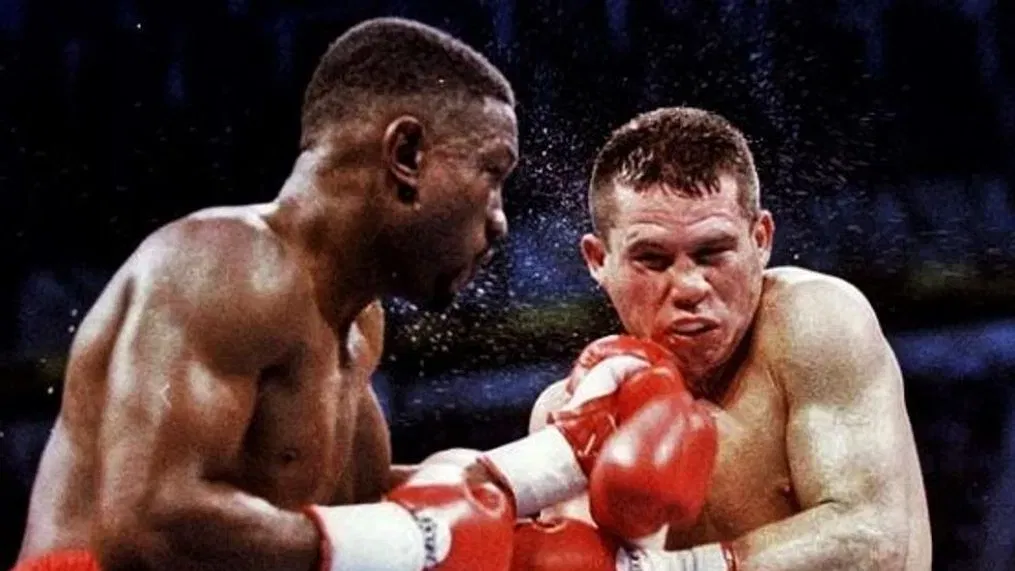
Their welterweight superfight matchup to crown an undisputed champion was hotly anticipated. And their contrasting styles and strengths promised a high-stakes bout for the ages…
The Fight
As expected, slick boxer Whitaker sought to frustrate powerful pressure fighter Chavez by using his supreme footwork and defense to avoid exchanges while sniping in scoring blows from range.
Although game, Chavez struggled to cut off the ring against the maestro Whitaker and was too often left swinging at air and eating counters. Whitaker was simply too quick and slippery, with Chavez only occasionally managing to trap his opponent against the ropes to unload – with limited success.
By most estimations, defensive wizard Whitaker controlled the fight through 12 tactical rounds even while yielding the finishing flurries edge to Chavez. At final bell, there was a growing sense that Sweet Pea would be crowned king via fair decision.
The Outrageous Scorecards
Thus, when ring announcer Jimmy Lennon read out a “majority draw” verdict allowing Chavez to somewhat farcially retain his perfect record and titles, the outrage was swift:
- Judge Mickey Vann (GBR): 115-113 Whitaker
- Judge Jack Woodruff (USA): 115-113 Whitaker
- Judge Manuel Chevaile (MEX): 115-115 Draw
Whitaker had seemingly earned recognition as the undisputed king at welterweight in a comfortable victory. Instead, Chavez rode into the Mexican sunset clutching onto his treasured “0” courtesy of charity from the officials.
The Aftermath
Whitaker was characteristically zen amid the latest outrageous decision in his trailblazing career:
“I knew this would happen. Yet another one of these stupid-ass draws. Makes me sick. He ran all damn night.”
Pernell Whitaker would finally gain official recognition as the undisputed welterweight champion in his next bout against Chavez conqueror Oscar De La Hoya. Yet his legacy is still stained by being forced to settle for less than he deserved versus a boxing legend.
Controversial Boxing Decision #3: Timothy Bradley vs. Manny Pacquiao I – June 9, 2012
Manny Pacquiao entered this 2012 welterweight title clash as the global torchbearer for boxing, feted as the mythical pound-for-pound king and already guaranteed a Hall of Fame berth courtesy of his unprecedented eight-division world title conquest.
Little-known American Timothy “Desert Storm” Bradley on the other hand was stepping up to face Pacquiao after compiling an impressive yet mostly unheralded 28-0 ledger built against second-tier opposition overseas.
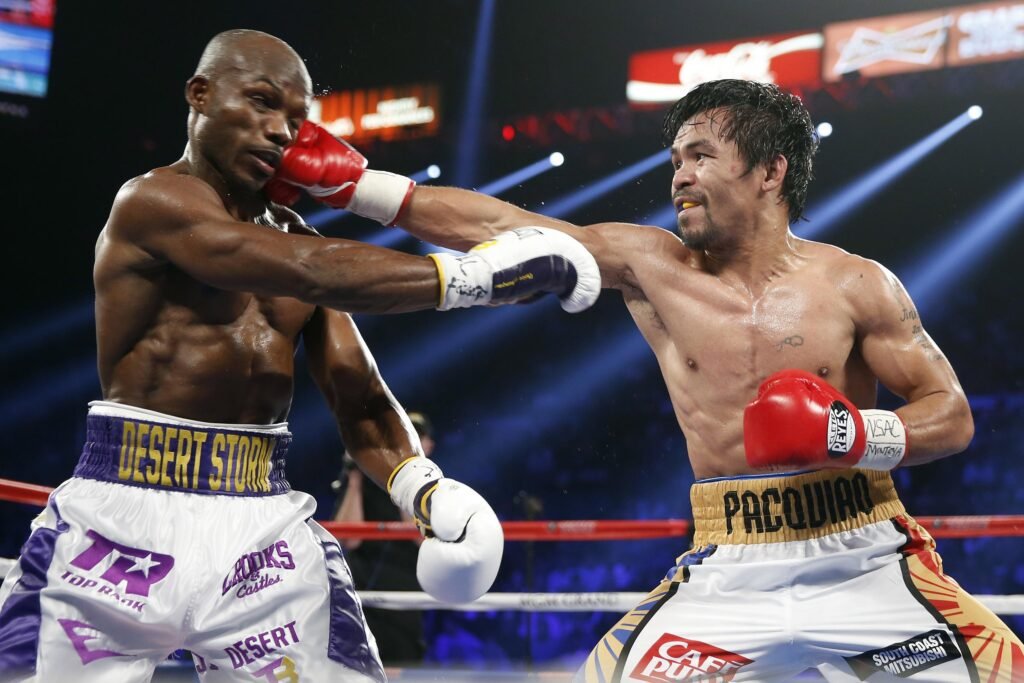
While Bradley was undeniably world-class, a Pacquiao victory felt like an inevitability and 7/1 Vegas odds reflected a sizable gulf in proven pedigree between the pair…
The Fight
Early on, Bradley rushed into exchanges and was routinely punished by brilliant counter puncher Pacquiao, wobbling at times and struggling to land his own shots through Pac Man’s superior speed and angles.
Outclassed through six rounds, Bradley did manage to have slightly more success in the mid-to-late goings after making adjustments to his strategy. Yet Pacquiao continued to thoroughly out-work his opponent, landing the clearly stronger and higher volume of meaningful leather.
By the championship rounds, Bradley needed an improbable KO having ceded so much ground early, which never came. At final bell most scorecards were clearly in Pacquiao’s favour following 36 minutes of largely one-way traffic.
The Scorecards
Jimmy Lennon’s announcement was thus met with utter disbelief from the assembled boxing world experts:
- Judge Duane Ford (USA): 115-113 Bradley
- Judge CJ Ross (USA): 115-113 Bradley
- Judge Jerry Roth (USA): 115-113 Pacquiao
Somehow all-time great Manny Pacquiao found himself on the losing end of one of the most inexplicably terrible championship fight decisions.
Expert Reactions
Renowned HBO broadcast team Harold Lederman and Max Kellerman were apoplectic during their shocked post-fight breakdown of the scoring. Like most observers they had Pacquiao comfortably up seven or more rounds after 36 minutes of dominance.
“That is absolutely disgusting,” raged Lederman before analyzing the action round-by-round to underline his certainty that Manny Pacquiao had clearly and obviously defeated Timothy Bradley. Kellerman agreed the decision was an “absolute absurdity.”
Their outrage reflected that of the worldwide boxing community in response to one of the worst calls in the history of the sport.
Controversial Boxing Decision #4: Dave Tiberi vs. James Toney – February 8, 1993
Dave Tiberi was an undefeated middleweight contender with growing hype when he stepped up to face the feared champion James “Lights Out” Toney in 1993.
While Toney was widely considered the top 160 pounder on the planet, Tiberi’s slick boxing style led some to believe he could potentially outfox and outpoint Toney over 12 rounds if he avoided the champion’s crippling power. Still, Toney went off as a clear betting favourite due to his formidable experience edge against world-class opposition.
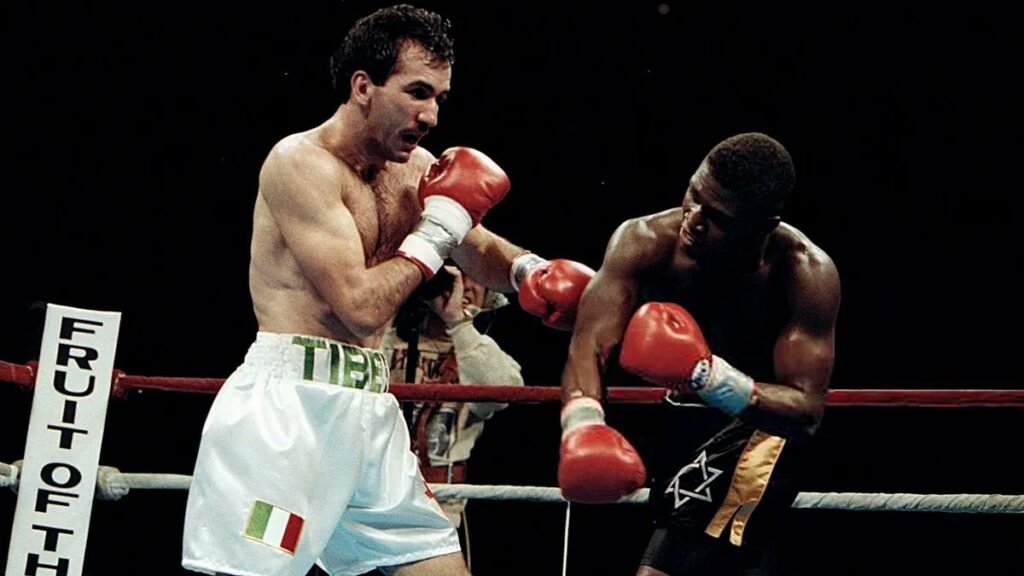
The Fight
As expected, clever boxer Tiberi put on an early masterclass, using fluid movement and fast jabs to thoroughly outbox the dangerous brawler Toney through four rounds while avoiding any bombs coming back. Although stunned on occasion, Tiberi dictated most of the action behind his piston jab while Toney struggled to land cleanly on his elusive opponent.
Over the second half of the fight, Toney did manage to close the gap at times and implement thudding hooks to slow his opponent’s output. Yet Tiberi continued racking up points via his superior work rate and precision punching, seemingly banking rounds even while yielding the heavier shots.
As the championship rounds played out, Tiberi was cut over his left eye following a clash of heads but bravely carried on using his legs and pop to neutralize Toney’s charges. Sensing title heartbreak, a tiring Toney furiously stalked but his bullying could not prevent Tiberi from confidently firing combos until the final bell.
At fight’s end, Dave Tiberi raised his gloves triumphantly believing the title would finally be his via tactical points victory while avoiding Toney’s vaunted power threats.
The Scorecards
- Judge Steve Weisfeld: 115-114 Toney
- Judge Dalby Shirley: 115-114 Toney
- Referee Tony Perez: 114-114 Draw
Somehow, James Toney had his arm held aloft to retain the world middleweight championship belt via SD despite Dave Tiberi comfortably out-landing him (206-157 overall, 120-76 power) through twelve rounds of boxing mastery.
The Aftermath
The Rank Boxing Organization who sanctioned the bout even officially apologized to Tiberi afterward, with their report indicating he had clearly out-performed Toney in a fight that ought to have brought Dave his first world title.
Dave Tiberi was sad to remark later: “I’m still waiting for my vindication twenty years later.”
This disgrace kickstarted louder calls for an independent agency to appoint judges and oversee scorecards in boxing. Tiberi meanwhile saw his career momentum heartbreakingly killed, fading into obscurity after coming agonizingly close to championship glory.
Controversial Boxing Decision #5: Lennox Lewis vs. Evander Holyfield I – March 13, 1999
This heavyweight unification bout between Olympic champions Lennox Lewis and Evander Holyfield marked an enticing clash of titans between top big men of their era.
With Holyfield stepping up in weight after clearing out the cruiserweight division before winning multiple world titles at heavyweight, their face-off to crown an undisputed king captured widespread intrigue. Still, Lewis was a clear betting favourite with Holyfield aged 36 and showing concerning wear as questions mounted over whether he remained an elite champion.
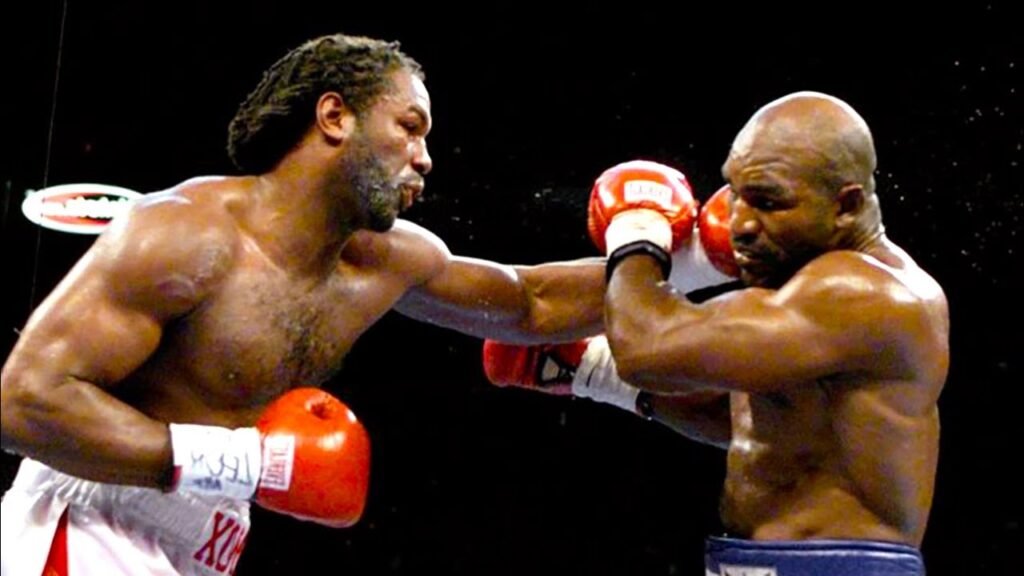
The Fight
Early on Lennox Lewis took control behind the jab, using his substantial height and reach advantages to keep Holyfield turning and set up booming power punch combinations. Although game as ever, Holyfield was unable to bridge the gap or mount any effective offense over the first four rounds.
Holyfield enjoyed slightly more success in the middle third, managing to pressure Lewis onto the ropes to land his own short attacks. But Lewis quickly reasserted command in round seven, visibly hurting the challenger for the first time with heavy straight shots before getting back to ruling range with his telephone pole jab and movement.
Ahead massively on points entering the final third, Lewis looked on course to dominant the cards having established firm control of the fight’s pattern of action. Although a Lewis stoppage win never materialised despite moments of dominance, his cumulative leads in landed blows and ring generalship pointed to a lopsided decision win on points.
The Draw
Staggeringly then, the verdict announced by Jimmy Lennon was…
- Judge Larry O’Connell: 115–115 Draw
- Judge Jerry Roth: 115–115 Draw
- Judge Eugenia Williams: 116–113 Lewis
“I’m devastated,” said Lewis in his post fight interview after having his hands unjustly taken from him on the cards. “No two people on the planet thought Evander Holyfield won the fight.”
Statistics would support that assertion, with CompuBox punch stats showing Lewis massively out-landing Holyfield by over eighty total punches and fifty power punches over twelve rounds of dominance.
Clearly, another boxing superfight had concluded with the official scorecards belying the action that unfolded before our eyes.
Boxing Judges Who Have Made Terrible Calls
In a subjective sport scored round-by-round on isolated metrics like effective aggression and ring generalship, reasonable observers will inevitably interpret bouts differently.
Yet the very worst championship fight scorecards manage to spurn basic comprehension, awarded by judges seemingly watching an entirely different event to the punch stats and most other viewers witnessing obvious dominance or superior work rate in the ring.
Here are four more egregious scorecards distorting legendary fights where all-time great boxers were blatantly robbed…
Controversial Boxing Decision #6: Marvin Hagler vs. Sugar Ray Leonard – April 6, 1987
When legendary middleweight champion Marvin Hagler defended his undisputed crown against all-time great welterweight Sugar Ray Leonard – inactive for three full years – it represented the most anticipated boxing matchup in decades.
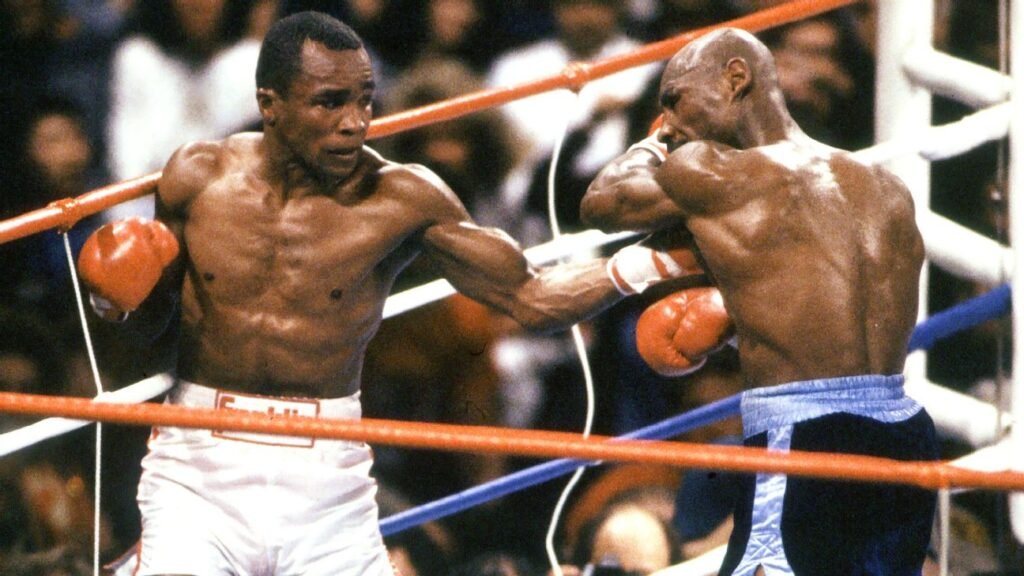
Still near his prime pinnacle at 32 years of age with 12 consecutive middleweight title defenses under his belt, rugged southpaw brawler Hagler went off as a 4/1 betting favourite given Leonard’s extended layoff and jump up two weight classes. But Leonard aimed to channel his peerless speed and genius to reclaim a world title in a second weight class.
The Fight
After a cagey few rounds where Leonard used constant movement and hesitant pot-shot combinations to disrupt Hagler’s pressure fighting, the Marvelous one soon turned up the heat to force exchanges on the inside where some felt his strength and aggression might overwhelm his formerly retired adversary.
Yet even while relinquishing the toe-to-toe battles and losing some middle rounds ground, the dancing Leonard succeeded in landing his own eye catching – if not fight altering – combinations whenever Hagler overcommitted attacks. As the fight wore on, Sugar Ray seemed to re-establish control of the ring and temp behind his mesmeric flurries and defensive wiles.
After 12 brutal rounds, there was a sense that Leonard may have just done enough to edge several key swing rounds with his sporadic assault and neutralization of the feared Hagler onslaught over 36 minutes. Still, with no official CompuBox stats in play, the fight still appeared incredibly close either way.
The Scorecards
Thus there was uproar at Jimmy Lennon’s reading of the judge’s scorecards crowning Sugar Ray Leonard as the new middleweight champion:
- Judge Jo Jo Guerra: 118-110 Leonard
- Judge Dave Moretti: 115-113 Leonard
- Judge Lou Filippo: 115-113 Hagler
While the Moretti and Filippo cards reflected a tightly contested battle that could conceivably fall to either legend by a hair, judge Guerra’s hallucinatory 118-110 scorecard awarding 10 of 12 rounds to Leonard simply did not square with the back-and-forth war most viewers witnessed.
Hagler instantly claimed the decision “smelled like a fish” and was clearly yet another Vegas hometown robbery loss. Leonard meanwhile privately accepted after watching the fight back that a draw would have been the fairest result.
Regardless where you stand on Leonard’s tactical brilliance countermanding his rounds ceded and overall lesser activity rate, Judge Jo Jo Guerra’s unofficial status as the only observer witnessing a one-
sided domination by Sugar Ray reveals precisely the type of inexplicably awful judging that poisons trust in major fight decisions.
Controversial Boxing Decision #7: Oscar De La Hoya vs. Felix Trinidad – September 18, 1999
Golden Boy Oscar De La Hoya stepped into the ring for this high-stakes welterweight unification bout attempting to silence doubters after a patchy previous 18 months. Puerto Rican puncher Felix “Tito” Trinidad meanwhile brought heavy hands and an unbeaten ledger to back up his Fighter of the Year award hopes.
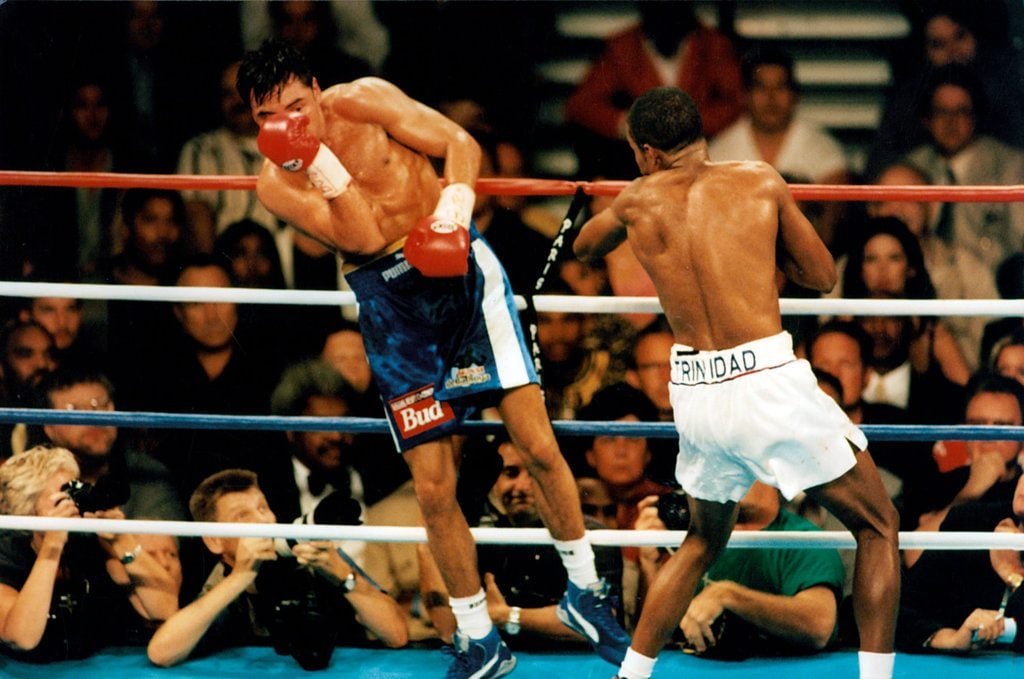
With no titles on the line, their fight captured the boxing world’s imagination strictly on pound-for-pound supremacy merit in a pick ’em betting line slugfest for the ages.
The Fight
De La Hoya started fast using his superior hand and foot speed to pick at Trinidad from range while avoiding any major comeback fire heading into the middle rounds with a growing points lead. An inspired Trinidad did manage to rally in round 7 but De La Hoya responded with brilliance in the 8th and appeared en route to a near certain decision win.
Entering the final four rounds with the fight seemingly in hand barring a knockout, De La Hoya opted to box cautiously off the back foot and coast rather than press for a stoppage. While failing to close the show, De La Hoya still continued landing eye-catching combinations in response to Trinidad’s one note bullying attacks right down to the final bell.
Having carried the significant punch output advantage, better landing percentages and ring generalship over 12 rounds, De La Hoya raised his arms aloft in expected triumph.
The Scorecards
Thus when Jimmy Lennon began reading the stupefying cards showing Felix Trinidad as the majority decision victor, Oscar’s face crumpled into bitter tears of injustice:
- Judge Bill Graham: 115-113 De La Hoya
- Judge Jerry Roth: 115-113 Trinidad
- Judge Chuck Giampa: 116-112 Trinidad
Somehow despite statistics clearly reflecting Oscar’s dominance in overall punches landed, punch accuracy percentage and landing the much higher ratio of power punches, two Vegas judges created their own unique reality.
Later questioned how he could have possibly only given De La Hoya a narrow split, Chuck Giampa triggeringly reasoned that he simply “doesn’t score jabs.” In doing so, Giampa revealed the subjective and mercurial reasoning boxing judges can apply when filling out scorecards bearing little resemblance to statistical fight data or unfolded events.
Controversial Boxing Decision #8: Jose Armando Santa Cruz vs. Joel Casamayor I – August 12, 2000
Joel “Cepillo” Casamayor entered this clash tipped as a rising force at 130 pounds, putting his unbeaten record on the line against tricky veteran titleholder Jose Armando Santa Cruz.
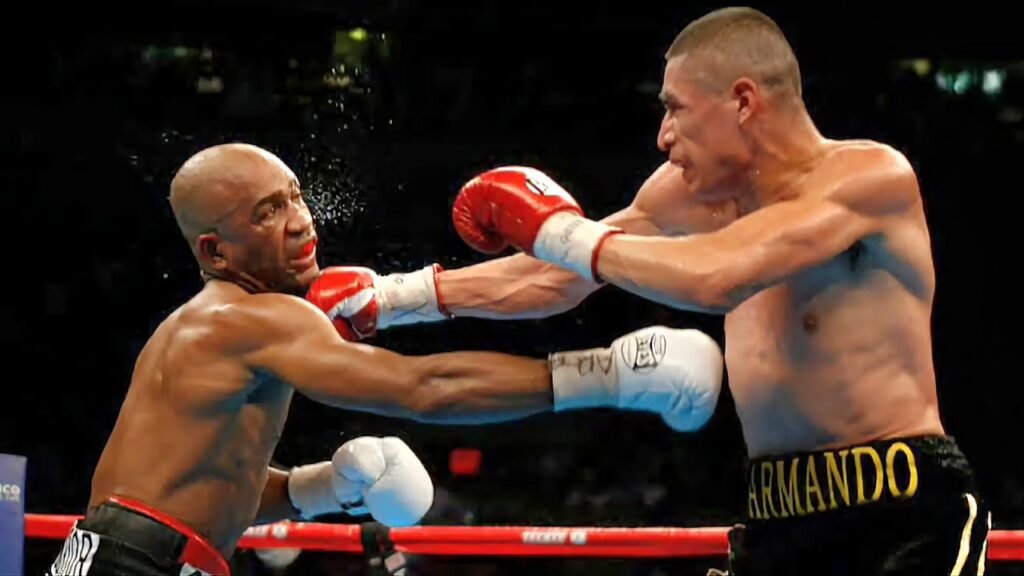
While Santa Cruz was the marginal betting pick, this intriguing high-stakes lightweight matchup was considered a virtual toss-up by most fight analysts. Still, Casamayor’s evident physical dynamism combined with his pressure fighting style was expected by some to gradually overwhelm Santa Cruz down the stretch.
The Tight Battle
As expected, Santa Cruz and Casamayor proceeded to engage in a tense chess match from the outset, with both looking to establish their left hand leads behind busy lateral movement and high guard defenses.
The early rounds were clear toss-ups reflecting the fight’s pick ’em odds, characterized by both men taking turns coming forward but having difficulty sustaining attacks or finding openings in their opponent’s airtight defenses.
By the midway point, a pattern was set: Santa Cruz enjoying slightly more success bullying Casamayor backward around the perimeter, while the Cuban managed eye catching counters whenever he managed to plant his feet and unload flashy combinations atop Santa Cruz’s lower output work rate.
Still, as they played out closely contested championship rounds, no clear winner revealed itself. Casamayor closed aggressively seeking the stoppage that would seal victory, battering his opponent with sustained assaults along the ropes. But Santa Cruz courageously rode out the storm and kept firing, ensuring a down-to-the-wire firefight likely decided by marginal differences in work rate versus flashy pot shot counters.
The Scorecards
Thus most were anticipating either a) a debatable decision that could fall one way or the other by a hair or b) a reasonable draw verdict reflecting the fight’s overall evenness.
Instead, the judges turned in confoundingly contradictory scorecards handing Jose Armando Santa Cruz an SD victory to retain his prized championship belt:
- Judge Jovanie Ramos: 115-113 Santa Cruz
- Judge Chuck Hassett: 114-114 Draw
- Judge Glen Hamada: 116-112 Casamayor
In possibly the most perfect encapsulation of subjectivity in fight scoring, somehow the three officials had each man both winning and losing eight rounds to four after witnessing the exact same 36 minutes of closely contested action.
What The Fighters Thought
Interestingly, speaking years later Santa Cruz admitted that when he reviewed the fight tape back privately he actually scored it in favour of his opponent:
“To tell you the truth, I saw it afterward and thought he [Casamayor] won the fight. But the judges saw it my way when we fought… maybe it’s because I’m Mexican and he was Cuban?”
Regardless whether you favoured Santa Cruz’s intermittent aggression over Casamayor’s superior work rate and flashy return fire, this fight reflected the vexing difficulty boxing judges face deciphering wildly conflicting interpretations of the same tightly contested action.
Controversial Boxing Decision #9: Josesito Lopez vs. Francisco Santana – June 21, 2015
Francisco Santana entered this 2015 crossroads welterweight matchup as the underdog versus contender Josesito Lopez’s Southern California star power and Canelo conqueror lore.
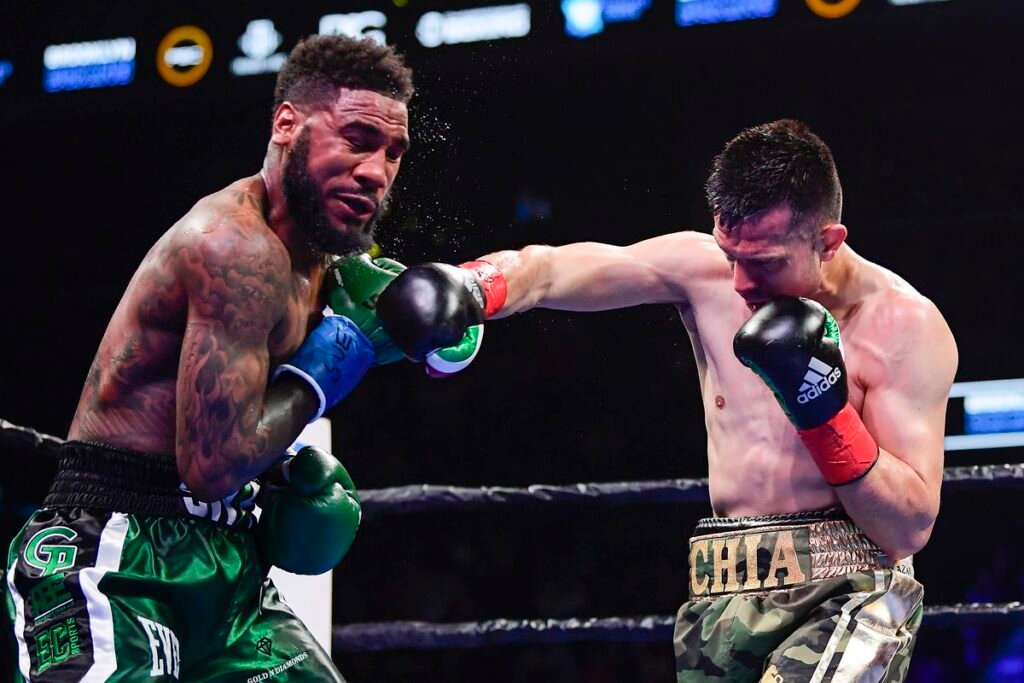
Still, after losing a controversial eight round split decision in their first clash back in 2011, Santana remained confident his remodeled pressure fighting style posed all kinds of problems second time round for the Riverside fan favourite.
The Fight
From the outset, Santana sought to apply thudding pressure and unload to Lopez’s body whenever in range. After ceding the first couple rounds, Santana soon found offensive joy bullying Lopez backward onto the ropes with clubbing left hook attacks.
By the middle rounds, damage mounted on a struggling Lopez as Santana continued strafing his opponent with long right hands and left ripostes whenever he pinned Lopez against the turnbuckles or forced him to overcommit into counters.
Despite eating clean punches round after round, a courageous Lopez managed to remain upright utilising slick upper body movement alongside timely clinching whenever cornered. Although out-hit 3:1 in power connects and struggling to mount his own meaningful attacks due to Santana’s relentless pressure, Lopez also sneaked in flashy potshots by round’s end as his opponent continued overpursuing.
Still, with CompuBox punch stats showing Santana massively outpacing Lopez before championship rounds, most viewers had Santana comfortably ahead heading down the stretch well ahead on clean landed blows if not Necessarily all-out dominance.
The Bewildering Scorecards
Thus it came as a complete shock when Michael Buffer inevitably announced Josesito Lopez as the winner and new NABF welterweight champion courtesy of an inexplicable majority decision verdict:
- Judge Pat Russell: 95-95
- Judge Fernando Villarreal: 97-93 Lopez
- Judge Max Deluca: 96-94 Lopez
Once again, statistics and real-time reality appeared at painful odds with the final decision rendered. Somehow Francisco Santana found himself unjustly denied career changing glory via one of the worst beat downs delivered by dubious boxing judging across the 2000s.
Controversial Boxing Decision #10: Billy Joe Saunders vs. John Ryder – September 21, 2013
Going into this all-British middleweight title eliminator matchup, defending champion Billy Joe Saunders was expected to make easy work of little known upstart John “The Gorilla” Ryder.
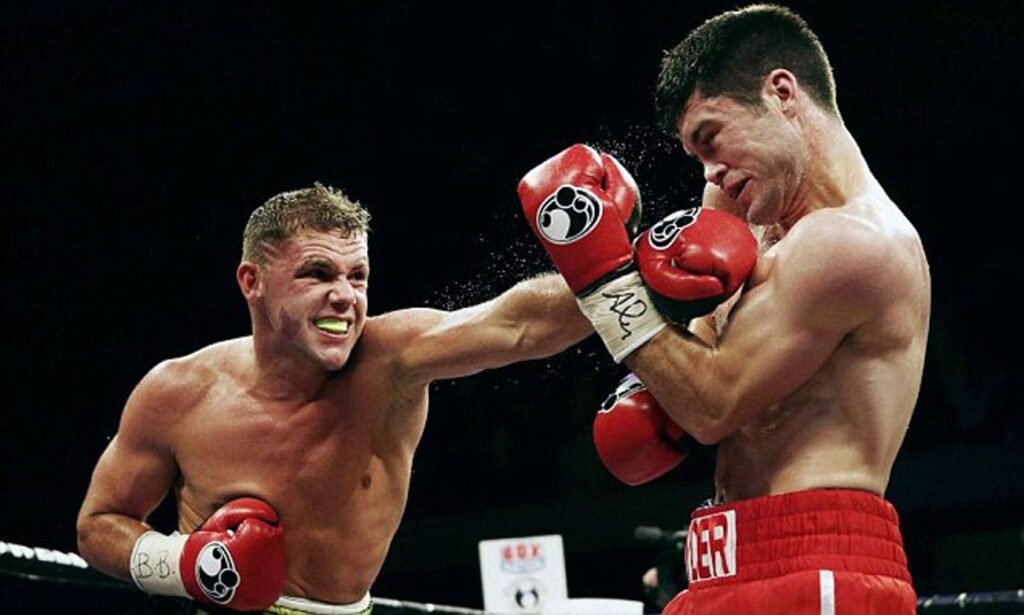
Although undefeated himself, Ryder had underwhelmed building his record against mostly limited overseas opposition. Thus he entered the O2 Arena in London as a sizable underdog.
The Fight
However once the opening bell rang, Ryder instantly set about executing his ferocious fight plan: applying ruthless pressure from the first round behind booming body shots and brute inside fighting strength whenever in clinching range. Saunders meanwhile struggled to establish any consistent offense as Ryder tore after him without relent.
Despite sustaining a nasty gash over his left eye from a fourth round head clash, Ryder continued imposing his will over a surprisingly timid Saunders with bully inside fighting and thudding head and body blows behind the high guard whenever Saunders attempted to tie him up.
CompuBox stats would eventually reflect the one way traffic, with Ryder massively out-landing Saunders in total punches (196-150) and power punches (169-126) over 12 rounds. After bullying the titleholder around the ring for virtually every minute, John Ryder appeared set for an upset coronation heading into the final round.
The Hometown Decision
Staggeringly then, when MC Jimmy Lennon announced his scorecard giving defending champion Saunders the victory, the London crowd erupted in fury. Once the judges were revealed awarding Saunders a narrow unanimous decision, the deafening boos shook the rafters:
- Judge Mike Alexander (UK): 115-113 Saunders
- Judge Steve Gray (UK): 115-113 Saunders
- Judge Rich O’Connor (US): 115-113 Saunders
“It was not my night. I’ve gone over it a thousand times. It’s heartbreaking to think I beat Billy Joe Saunders only for him to get the decision,” Ryder reflected later. Like outraged viewers, he remained adamant the hometown verdict handed to Saunders was a clear robbery.
Once again the victim of obscurity, Ryder faded back into the sport’s shadows denied opportunity earned after appearing dominant for long stretches.
Implementing Changes To Improve Boxing Judging and Fairness
Like Dave Tiberi before him, John Ryder voiced the depressing existential reality facing unfairly robbed yet little known fighters following bad beats:
“I was just gutted because it was such a good chance and big opportunity for me to burst onto the world scene.”
So how might boxing reform its blatantly broken and corruption enabling fight judging system to ensure fairer results?
Judge Accountability
Unlike scrutinized referees often interviewed post-fight to defend critical calls, boxing judges can effectively slip by silently submitting indefensible scorecards before vanishing into the wind.
Mauricio Sulaiman, president of the World Boxing Council argued strongly, judges ought to be required to publicly score key swing rounds and justify decisions post-fight when called upon:
“Why not have someone with a mic asking, ‘Why did you score that round for this guy?’ Make them feel the pressure.”
Increase Scoring Transparency
Letter grades reflecting which fighter judges are scoring round by round are already displayed on some sports broadcasts. That added context into each official’s thought process could be supplemented by live running tallies to increase transparency.
Add Scoring Reviews
As other sports have adopted with success, allowing boxing decision challenges or reviews in fights with multiple egregious scorecards overturning statistically measured dominance could provide redress.
Supplement With Tech
From instant replay to real time scoring sensors, various technologies already exist that could supplement if not leapfrog analogue boxing judgments outright. As computer vision solutions inevitably continue improving, digitally enhanced safeguards against unfair calls offer obvious assist potential.
Controversial fight finishes and bad beat decisions will always remain inevitable byproducts of boxing’s chaotic nature. However by taking measures to update oversight and install basic competency guard rails among officials, legitimacy lost after endless suspect high-stakes outcomes can be restored in a beloved blood sport.
The stakes demanding fairness for underpaid and overachieving pugilists couldn’t be higher.
Conclusion: The Critical Need For Reform
As we have seen across ten of boxing history’s most famously unjust championship fight verdicts, terrible judging decisions carry depressing implications for the undervalued artists practicing the sweet science.
Unlike team sports athletes benefitting from mass appeal and guaranteed contracts, individual boxers only earn career altering opportunity shots sporadically before their infinitesimally small windows close forever amid accumulating damage accrued.
Thus particularly in an exploited business as dangerously intwined with corrupt external interests like boxing, the critical need exists to overhaul antiquated and blindness enabling practices that allow terrible decisions destroying fighters like Francisco Santana and Dave Tiberi.
With more competently trained judges held accountable alongside technologies ensuring decisions reflect statistical and observed reality, vital trust and popular appeal so gravely lacking can be restored to a compelling yet repeatedly blighted combat theatre.
Because at present, the brokenness enabling terrible judges and refs to continue practicing unchecked poses an existential threat for fighters robbed of both glory and already short-lived peak earning years.
- Read More on BleachReport.
- Read Next on The Hardest Punchers In Boxing History – Ranking The Top 10 Most Powerful Punchers Of All Time!
FAQs
Here are the top 30 most asked FAQs on this blog post:
What are some of the most controversial decisions in boxing history?
Muhammad Ali vs. Ken Norton, Pernell Whitaker vs. Julio Cesar Chavez, Manny Pacquiao vs. Timothy Bradley and Marvin Hagler vs. Sugar Ray Leonard were very controversial decisions.
Why was Muhammad Ali vs. Ken Norton scoring controversial?
Muhammad Ali landed over 100 more total punches than Norton but lost a split decision that shocked onlookers.
How did Pernell Whitaker get robbed against Julio Cesar Chavez?
Whitaker comfortably outboxed Chavez according to most observers but was held to a disputed majority draw verdict allowing the Mexican legend’s “0” record to remain intact.
What made Pacquiao vs. Bradley 1 so controversial?
Manny Pacquiao dominated the fight statistically and visually but somehow lost on two shocking scorecards that provoked outrage.
Why is Hagler vs Leonard still debated today?
Marvelous Marvin Hagler appeared to edge a close tactical battle but judge Jo Jo Guerra inexplicably scored the fight 10-2 for Sugar Ray Leonard.
What other terrible decisions have famously occurred in boxing history?
Dave Tiberi losing to James Toney, Oscar De La Hoya robbed versus Felix Trinidad, Lennox Lewis held to a draw by Evander Holyfield and Tyson Fury beating Deontay Wilder controversially all sparked controversy.
How can the broken boxing judging system be improved?
Instituting reforms like increased judge accountability, scoring transparency, reviews, enhanced training and supplementing decisions with technology could help improve fairness.
Is corruption behind some bad boxing decisions?
Yes, questionable interests and boxing politics have fueled notorious decisions like Felix Trinidad defeating Oscar De La Hoya suspiciously on the cards.
Do championships fights see more bad decisions?
High-stakes bouts for world titles or between elite names tend to produce more hotly disputed verdicts given increased fame, money and legacy implications.
Why do fights held in Vegas lead to controversial scorecards?
Sin City’s boxing events have developed an infamous reputation for perplexing scorecards and hometown decisions benefitting marquee stars like Canelo Alvarez.
Could instant replay help improve boxing judging?
Yes, allowing limited fight decision challenges or reviews of egregiously bad scorecards could provide redress against unfair robberies.
Would sensors improve boxing scoring accuracy?
Real-time sensors tracking landed shots already exist and could supplement subjective judging by providing unbiased statistical insights.
Do computers have a future role scoring boxing matches?
As computer vision tech continues advancing, fully automated scoring based on measured fight metrics could eliminating human bias from results.
How often do bad decisions lead to rematches?
Controversial verdicts frequently act as a catalyst for promoters ordering big money rematches in an effort to “settle the score” – and pad their own pockets.
Do boxers ever admit to benefiting from gift decisions?
Some guilty fighters like Jose Armando Santa Cruz have privately conceded they may have received generosity from judges and commentators afterward.
How much do judges get paid to score major fights?
The reported payment for big championship fight judges generally ranges from low four figures up to around $5-10k depending on the bout scale and their experience levels.
Can a boxer win a fight without landing more total punches?
Yes, judges award fights based on the totality of success factors like damage inflicted, effective aggression and defense beyond just raw punch counts.
Do judges sometimes disagree wildly when scoring the same bout?
Absolutely – Jose Armando Santa Cruz vs Joel Casamayor saw all three judges somehow score eight rounds to four against each other after watching the exact same fight.
What happens when multiple judges turn in terrible scorecards?
Egregious verdicts often force sanctioning bodies to order immediate rematches in efforts toward establishing certainty around the superior fighter.
Do body punches get scored effectively by judges?
This remains a constant concern – Felix Trinidad infamously lost to Oscar De La Hoya after one judge admitted he simply “doesn’t score jabs” – reflecting messed up priorities.
Could open scoring impact judging performance positively?
Yes, by revealing judges’ round-by-round tallies earlier, accountability forcing them to justify decisions viewed as unreasonable in real-time is increased.
Would more ex-fighters make better fight judges?
Logic says employing judges intimately familiar with taking and weathering punches should see increased scoring accuracy – but no consistent evidence yet exists supporting that theory.
Are rematches the only avenue toward justice for robbed fighters?
Sadly rematches are rarely granted automatically and since window opportunities are so brief at elite level, most controversially defeated boxers become permanently branded as “fighters who came up short in their big chance.”
How much subjectivity exists in boxing scoring?
The entire undertone of this sport remains intensely subjective opinions, reflected everywhere from wild official scorecard variations after identical fights to pound-for-pound rankings.
Which boxing organization has the worst judging track record?
No sanctioning body is innocent after outrage enabling travesties spanning decades. But the Mexico based WBC in particular continues perpetrating high profile controversies.
Could more women judges help reform the broken status quo?
Some have theorized introducing refreshed perspectives absent the engrained motivational biases holding men back could positively shake up judging.

[…] Read Next on The Most Controversial Boxing Decisions Ever! […]
[…] Read Previous Post on The Most Controversial Boxing Decisions Ever! […]